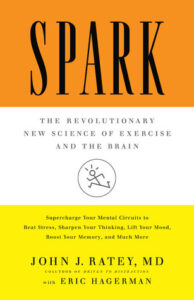Tips to Boost Focus
5 Tips to Boost Focus for a Successful School Year
As the school year kicks into high gear, students of all ages find themselves juggling coursework, assignments, extracurricular activities, and more. The ability to focus effectively is a key determinant of academic success. However, with the constant influx of information and distractions in today’s digital age, maintaining sharp focus can be challenging. Fear not, for we’ve compiled a set of valuable tips to help optimize your focus and make this school year your most productive one yet.
1. Prioritize sleep: the foundation of focus
It’s easy to underestimate the importance of sleep, especially when deadlines loom. However, skimping on sleep can hinder cognitive function, memory retention, and overall focus. Aim for 7-9 hours of quality sleep each night. Create a sleep-conducive environment by keeping your bedroom dark, quiet, and cool, and establish a consistent sleep schedule to regulate your body’s internal clock. As mentioned in an earlier blog post of ours, sleep is often considered to be as important or more important than sleep and exercise to long-term health.
2. Maintain a nutrient-rich diet and hydrate well
Eating a balanced diet rich in whole foods provides your brain with the necessary nutrients to function optimally. Omega-3 fatty acids found in fish, nuts, and seeds support brain health, while antioxidants in fruits and vegetables combat oxidative stress. Incorporate lean proteins, whole grains, and plenty of water to maintain stable energy levels and mental clarity. Furthermore, dehydration can lead to decreased cognitive performance, fatigue, and difficulty concentrating. Make it a habit to drink water throughout the day, aiming for around 8 glasses (about 2 liters). Keep a reusable water bottle handy and sip regularly to maintain optimal hydration levels. And don’t neglect electrolytes!
3. Exercise Regularly: Move Your Body, Sharpen Your Mind
Physical activity isn’t just beneficial for your body; it also has a positive impact on cognitive function. Engaging in regular exercise promotes blood flow to the brain, and releases mood-enhancing chemicals like endorphins, as well as releasing chemicals that promote learning. Incorporate at least 30 minutes of moderate exercise into your daily routine, whether it’s walking, jogging, dancing, or playing a sport. If you want to learn more about the effects of exercise on brain health, there are many excellent books on the subject, one of which is Spark by John J. Ratey, MD, in which an exciting case study was done incorporating a fitness routine into the high school routine of students in Naperville, IL and the effects on their school performance.
4. Get Regular Eye Checkups: Clear Vision, Clear Mind
Eye strain from extended screen time can negatively impact focus and cause discomfort. Schedule regular eye checkups and ensure proper lighting to reduce strain on your eyes. Follow the 20-20-20 rule: every 20 minutes, take a 20-second break to look at something 20 feet away.
5. Practice Mindfulness and Meditation: Train Your Attention
Mindfulness and meditation techniques can help improve focus by training your mind to stay present and attentive. Allocate a few minutes each day to engage in mindfulness exercises, deep breathing, or meditation. These practices enhance your ability to manage distractions and improve your concentration. Can you imagine how ahead of the game your child could be if they engaged in a daily mindfulness or meditation practice in their teens?!
Incorporating these health tips into your routine can have a profound impact on your focus, concentration, and overall well-being throughout the school year. Remember, small adjustments can yield significant results. By prioritizing your physical and mental health, you’ll set yourself up for success in your academic endeavors and beyond. And don’t forget to bring the kids in for chiropractic care tune-ups to set them up for academic success! Contact us at 605-271-4109.
